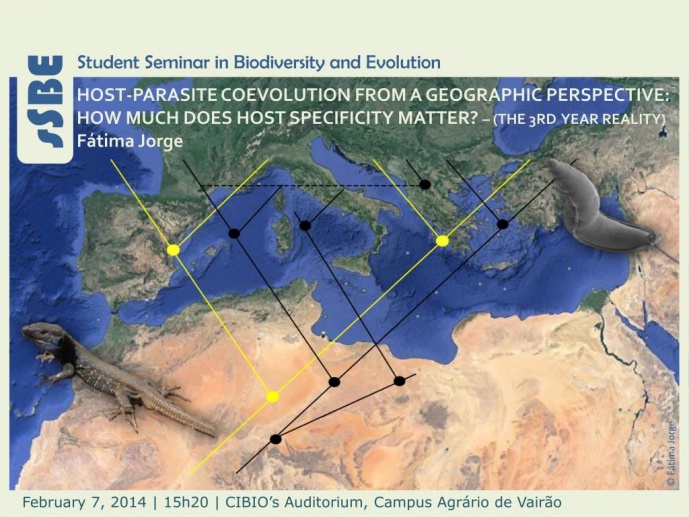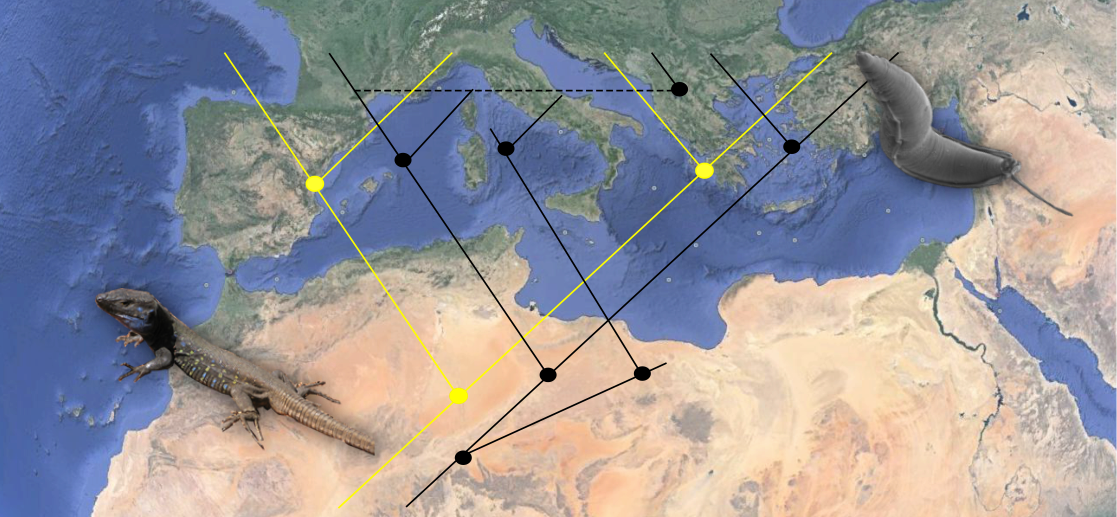HOST-PARASITE COEVOLUTION FROM A GEOGRAPHIC PERSPECTIVE: HOW MUCH DOES HOST SPECIFICITY MATTER? – (THE 3RD YEAR REALITY)

STUDENT SEMINAR IN BIODIVERSITY AND EVOLUTION

Host-parasite relationships are one of the driving forces of species diversification. Several ecological traits and their geographic variation influence the degree of congruence between host and parasite phylogenies, and ultimately host specificity. Understanding how host specificity evolves across the geographical range of a parasite and how it affects co-phylogenetic congruence is essential to understand how parasites and their hosts have coevolved since their origins. To investigate such links, I am using an integrative approach relying on phylogenetic, morphological and ecological traits of host-parasite associations. Spauligodon parasites (Nematoda) and their reptile hosts provide an ideal model to study such intimate interactions, since it is a cosmopolitan genus with a simple (one-host) life-cycle with no free-living stages.
In this seminar I will present an overview of work done during the first two years of my PhD and the work plan for the next two years.
Fátima is a 3rd year BIODIV PhD student, who is conducting her work on host-parasite interactions between CIBIO-InBIO and the University of Otago (New Zealand), under the supervision of Miguel A. Carretero (CIBIO-InBIO, Applied Phylogenetics Group), Robert Poulin (University of Otago, New Zealand) and Vicente Roca (University of Valencia, Spain).
Image credits: Fátima Jorge